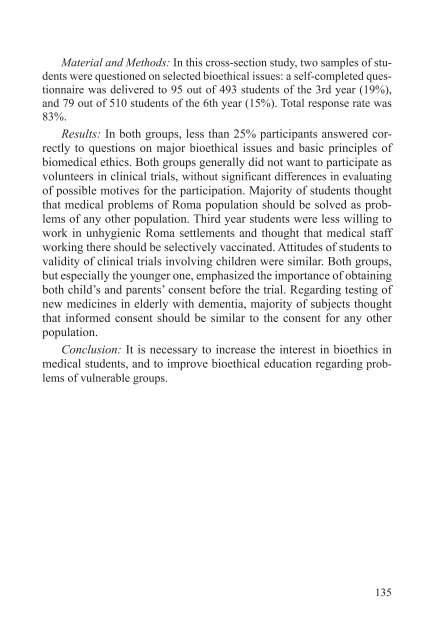ovdje - Hrvatsko filozofsko društvo
ovdje - Hrvatsko filozofsko društvo
ovdje - Hrvatsko filozofsko društvo
You also want an ePaper? Increase the reach of your titles
YUMPU automatically turns print PDFs into web optimized ePapers that Google loves.
Material and Methods: In this cross-section study, two samples of students<br />
were questioned on selected bioethical issues: a self-completed questionnaire<br />
was delivered to 95 out of 493 students of the 3rd year (19%),<br />
and 79 out of 510 students of the 6th year (15%). Total response rate was<br />
83%.<br />
Results: In both groups, less than 25% participants answered correctly<br />
to questions on major bioethical issues and basic principles of<br />
biomedical ethics. Both groups generally did not want to participate as<br />
volunteers in clinical trials, without significant differences in evaluating<br />
of possible motives for the participation. Majority of students thought<br />
that medical problems of Roma population should be solved as problems<br />
of any other population. Third year students were less willing to<br />
work in unhygienic Roma settlements and thought that medical staff<br />
working there should be selectively vaccinated. Attitudes of students to<br />
validity of clinical trials involving children were similar. Both groups,<br />
but especially the younger one, emphasized the importance of obtaining<br />
both child’s and parents’ consent before the trial. Regarding testing of<br />
new medicines in elderly with dementia, majority of subjects thought<br />
that informed consent should be similar to the consent for any other<br />
population.<br />
Conclusion: It is necessary to increase the interest in bioethics in<br />
medical students, and to improve bioethical education regarding problems<br />
of vulnerable groups.<br />
135

















